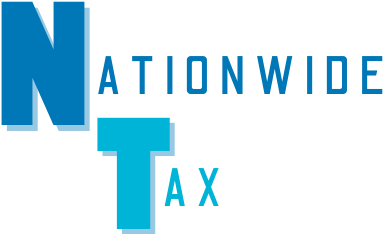Introduction
When tax season rolls around, many individuals find themselves facing the daunting task of preparing and filing their taxes. The complicated nature of tax laws and regulations can make this process overwhelming and time-consuming. That’s where a professional tax preparer can come to the rescue.
But is hiring a professional tax preparer the right choice for you? In this article, we’ll explore the pros and cons of using a professional tax preparer to do your taxes. By understanding the benefits and drawbacks, you can make an informed decision that best suits your tax preparation needs.
Table of Contents
- Benefits of Using a Professional Tax Preparer
- Drawbacks of Using a Professional Tax Preparer
- Key Takeaways
- Frequently Asked Questions
- Conclusion
Benefits of Using a Professional Tax Preparer
1. Expertise and Knowledge: Professional tax preparers have a deep understanding of tax laws and regulations. They stay up-to-date with the latest changes and can navigate complex tax codes to ensure accurate and efficient tax preparation.
2. Time-Saving: Tax preparation can be a time-consuming process, especially if you have a complex financial situation. By hiring a professional tax preparer, you can save valuable time and focus on other important aspects of your life.
3. Minimize Errors: Mistakes on your tax return can lead to penalties and delays in receiving your refund. Professional tax preparers are trained to identify potential errors and ensure that your tax return is error-free, minimizing the risk of audits or other complications.
4. Maximize Deductions and Credits: Tax laws are complex, and it can be challenging to navigate the various deductions and credits available to you. A professional tax preparer can help identify all eligible deductions and credits, maximizing your tax savings.
5. Audit Support: In the unlikely event that you are audited by the IRS, having a professional tax preparer by your side can provide peace of mind. They can guide you through the audit process, represent you before the IRS, and help resolve any issues that may arise.
Drawbacks of Using a Professional Tax Preparer
1. Cost: Hiring a professional tax preparer can be expensive, especially if you have a complex tax situation. The cost can vary depending on the complexity of your taxes and the fees charged by the tax preparer. It’s important to consider whether the potential tax savings outweigh the cost of hiring a professional.
2. Lack of Personal Involvement: Some individuals prefer to handle their own taxes to have a better understanding of their financial situation. By outsourcing tax preparation to a professional, you may miss out on the opportunity to learn and gain insights into your own tax situation.
3. Limited Availability: During tax season, professional tax preparers can be in high demand, leading to limited availability. If you wait until the last minute to seek their services, you may face difficulty finding a professional tax preparer who can accommodate your needs.
4. Potential for Mistakes: While professional tax preparers strive for accuracy, there is always a possibility of human error. It’s essential to review your tax return carefully before filing to ensure all information is correct.
Key Takeaways
Using a professional tax preparer for your taxes can provide numerous benefits, including expertise, time savings, error minimization, maximizing deductions and credits, and audit support. However, it’s important to consider the potential drawbacks, such as the cost, lack of personal involvement, limited availability, and the possibility of mistakes.
Ultimately, the decision to hire a professional tax preparer depends on your individual needs and preferences. If you have a complex financial situation or lack the time and knowledge to navigate tax laws, hiring a professional may be the right choice for you. On the other hand, if you prefer a hands-on approach and have a relatively simple tax situation, you may opt to handle your taxes yourself.
Frequently Asked Questions
1. How do I find a reliable professional tax preparer?
To find a reliable professional tax preparer, consider asking for recommendations from friends, family, or colleagues. You can also check for certifications such as Certified Public Accountant (CPA) or Enrolled Agent (EA). It’s important to do your research, read reviews, and interview potential tax preparers to ensure they have the necessary expertise and experience.
2. Can I switch tax preparers if I’m not satisfied?
Yes, you can switch tax preparers if you’re not satisfied with their services. It’s essential to communicate your concerns and expectations clearly. If you’re unhappy with the level of service or expertise provided, consider seeking a different professional tax preparer who better meets your needs.
3. What documents do I need to bring to a professional tax preparer?
When meeting with a professional tax preparer, it’s important to bring all relevant documents, including:
- W-2 forms for all jobs held during the tax year
- 1099 forms for any freelance or contract work
- Documentation of any income received, including interest, dividends, or rental income
- Receipts for deductible expenses, such as medical expenses, education expenses, or business expenses
- Any other relevant financial documents, such as mortgage interest statements or student loan interest statements
Conclusion
Choosing whether to use a professional tax preparer to do your taxes is a personal decision that depends on your financial situation, time availability, and comfort level with tax laws. Consider the pros and cons discussed in this article, weigh the potential benefits against the drawbacks, and make an informed decision that suits your needs.
